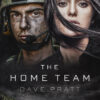Hi. Winnie Griggs here, with the next installment in my posts about speaking engagements. To read previous installments, see the links at the bottom of this post.
Before we talk about research venues, let’s discuss the different types of talks you might be called on to present. I categorize these in four groupings as follows:
- Informational – these are presentations where you are basically teaching some skill or process through a lecture format. Most writer workshops fall into this cateory.
- Demonstrational – these are presentations where you show the attendees how to do something in a visual, step by step manner. Examples would be pottery classes, cooking demos, or sports clinics.
- Persuasive – these are speeches where you try to change the way members of the audience feel about your topic. For instance talks about changing personal habits to promote a healthier lifestyle or speeches about certain environmental or political issues.
- Motivational – These are talks designed to move your audience on an emotional level, to uplift and/or encourage them in some way
The research you do will be influenced in some measure by which of these four types of talks you are preparing for. What I’m going to discuss here is primarily aimed at the first type of talk – the Informational workshop. So here we go.
Providing information that is well researched and documented can enhance your presentation’s effectiveness and your own credibility. Your objective in the early stages is to indiscriminately gather all the information you can on your selected topic.
There are a number of different ways to research your topic, and I normally use some mix of all of them.
- Personal interviews – if you can obtain access to an expert in this field, getting their take on the subject can add a great deal of creditability to your talk, as well as provide insights that might cause you to look at your topic in a new light. This also allows for an interactive exchange of information so that you can gain clarity on points that seem a bit murky to you
- Internet – surf the web for information about your particular topic.
For statistical information, you might want visit governmental, educational and scientific sites.
Check out the bibliography section of the articles you find. These may lead you to valuable resources you can check out in your local library - Speaking of your local library – dig through the card catalog and talk to your reference librarian to locate books and periodicals that discuss your topic
- Your own bookshelves – Not only do I have dozens upon dozens of books relating to the writers’ craft, I also have specialty books for research I’ve done on historical time periods. Also, In addition to craft and specialty books, look to your keeper shelf when you want to pull out examples that illustrate a particular point you want to make
- Your own experience. What mistakes have you made in this area and how did you go about correcting them. What has worked for you may work for others
- The experience of other writers – A very powerful method of research is to get on various writer loops you belong to and ask other writers what experience they might have with the topic you are dealing with. Writers love to share their knowledge and I have found this to be an excellent source of information, adding depth and spins to my workshop presentations that would not have been there otherwise. Always make certain you give full credit to the contributing authors.
Again, think outside the box. Look for tidbits, details, and possible ways to spin your message in unexpected places. For instance, when I was gathering data for the workshop that this series of posts is based on, I found some notes on how to write a magazine article that sparked new ideas for the message points I wanted to deliver.
So, are there for research venues you’ve utilzed effectively that I didn’t mention here? If so, please share.
Previous posts in this series:

